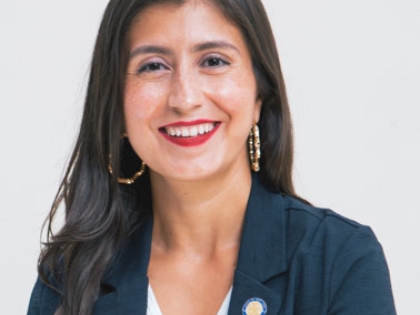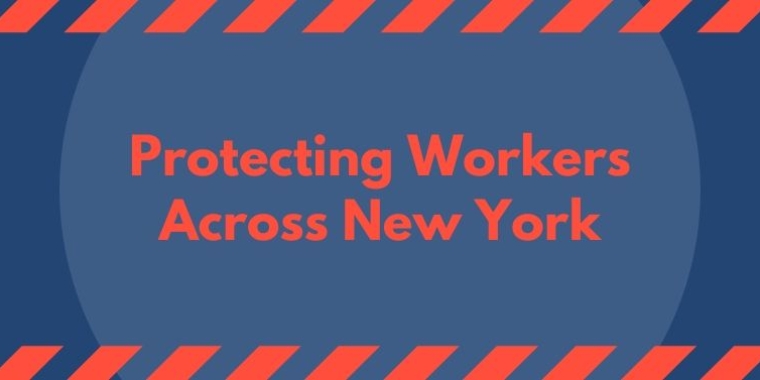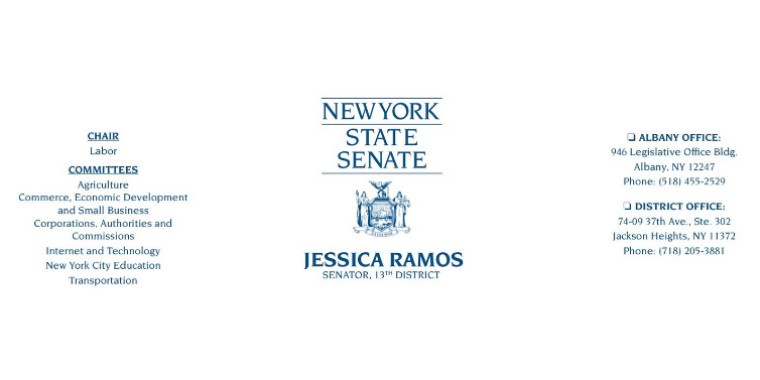
Senator Ramos Champions E-Verify Bill to Protect Undocumented Immigrants in New York
January 16, 2020

Queens, NY — New York State Senator Jessica Ramos (D-Corona, Jackson Heights) introduced a bill (S6812) for the 2020 legislative session that prohibits employers from using the federal electronic employment verification system (E-Verify) to check the employment authorization status of an existing employee or a prospective employee before they’re hired. Currently, New York State does not require employers to use E-Verify. However, employers can voluntarily use the program, and municipal governments can opt to require employers to use the system. This bill would also revoke cities’ and municipalities' ability to require employers to use E-Verify and provide employees an ability to challenge an incorrect E-Verify notice.
“Your immigration status shouldn’t preclude you from making an honest living and advancing your career. Yet deceptive ads running on national television during influential events such as Tuesday’s democratic presidential debate are spreading false information about E-Verify and as a result, inciting more xenophobia across the U.S.,” said Ramos. “The E-Verify system is flawed, which is why I want to make it illegal to require these E-Verify checks in New York. We need to protect undocumented immigrants who are here in search of safety and economic opportunity, and I believe my bill will do just that.”
Angeles Solis, Lead Organizer of Workplace Justice Team at Make the Road New York said, “New York must be a leader in protecting the immigrants in our communities. Negligent employers exploit E-Verify to intimidate immigrant workers seeking opportunities to provide for themselves and their families. It's time for New York to do away with E-Verify requirements and align themselves with a vision of freedom for our immigrant neighbors - freedom to move, freedom to stay, freedom to work and thrive. This bill represents a strong step in the right direction.”
“New Yorkers should not be fooled by programs popular among anti-immigrant hate groups. That's the case with E-Verify, a program that only pushes workers further underground and to the margins, making them more easily exploitable by bad-acting employers. We are proud to call Senator Jessica Ramos our State Senator and to partner with her and the labor movement to ensure economic justice is open to all workers," said Manuel Castro, executive director of New Immigrant Community Empowerment (NICE). "Immigrant workers make up a disproportionate amount of workplace abuse victims. By prohibiting cities and municipalities from forcing employers to use E-Verify, this bill will send a resounding message to immigrant communities across the state and it'll allow workers to better come together to fight for safer, better-paying jobs."
Background:
The Electronic Verification System (E-Verify) is a federal program, created through the 1996 Immigration Reform and Control Act. E-Verify provides employers the ability to check their employees' immigration status. Senator Ramos’ bill would accomplish three things: it would allow an employee to challenge an incorrect e-verify notice; it would prohibit with penalty the use of E-Verify before hiring an employee ; and it would limit municipal governments and city governments from requiring an employer to use the E-Verify system.
If the E-Verify system questions an employees' immigration status the employer will then receive a TNC ("tentative non- confirmation") notice. A USCIS-commissioned study found that 8 3 percent of erroneous FNCs ("final non-confirmations") occurred because an employer failed to notify an individual of a TNC.
This bill reiterates employers' obligation to notify their employees of a TNC and will fine employers up to $10,000 for failing to provide notice. Also, this bill disallows municipalities from passing ordinances requiring employers to use the E-Verify system.
###
related legislation
Share this Article or Press Release
Newsroom
Go to NewsroomLISTEN: Discussing universal child care in New York State
December 9, 2021

What Happened to Carlos' Law?
November 30, 2021